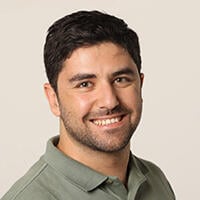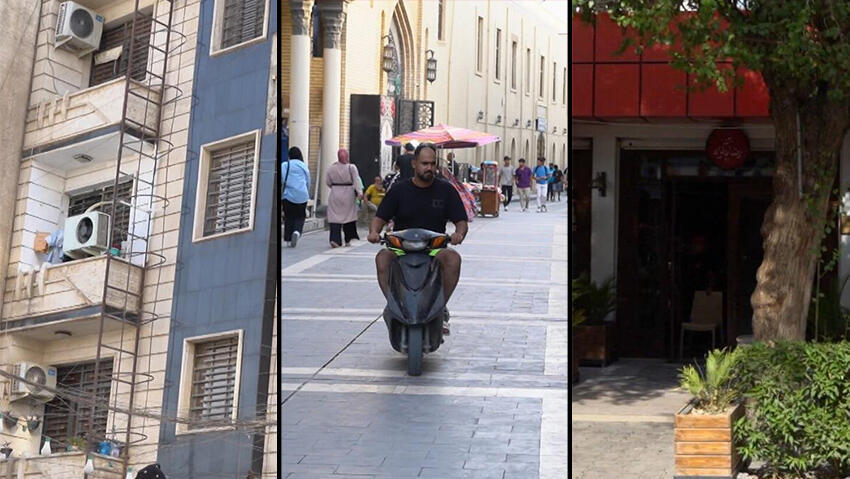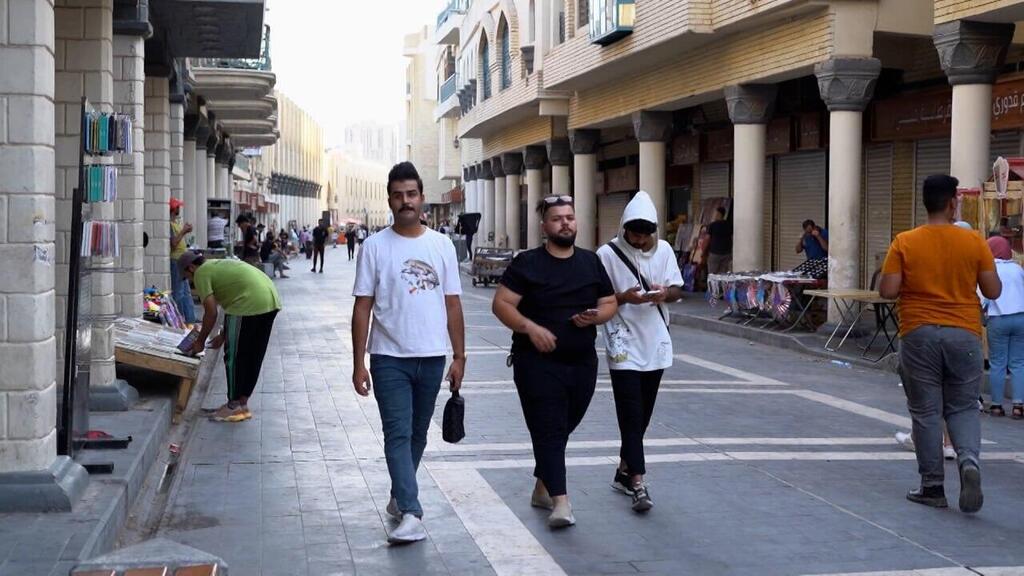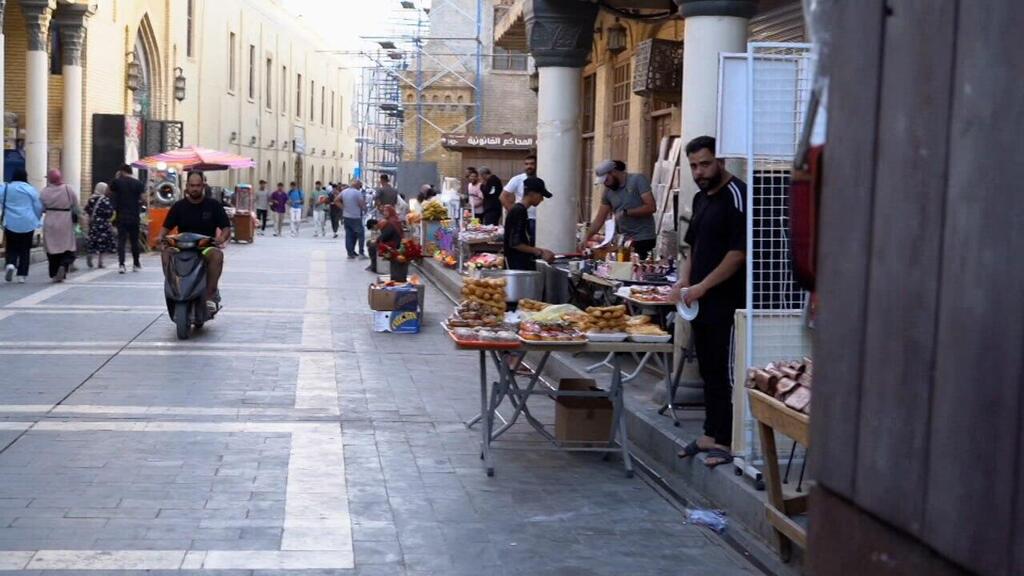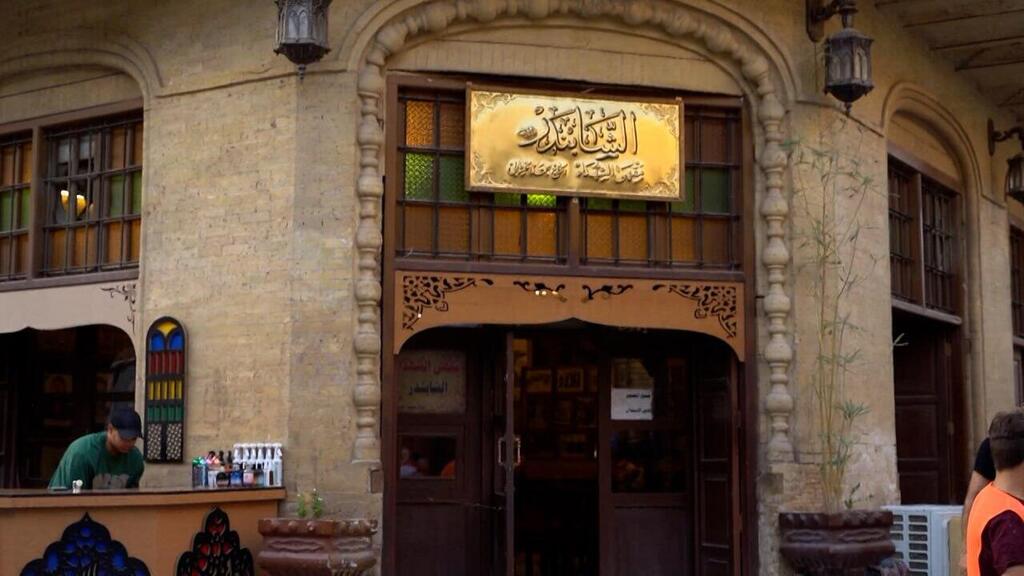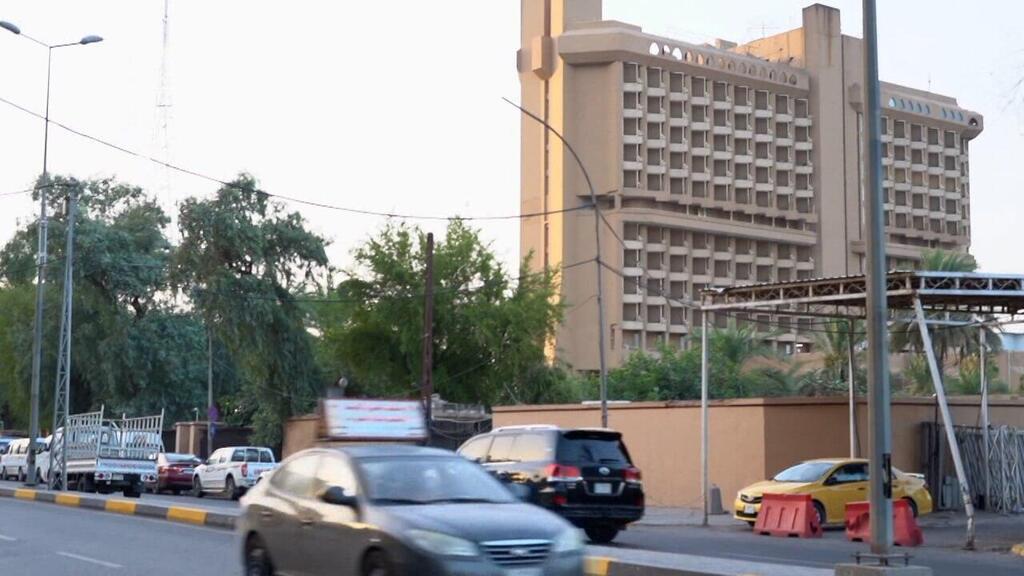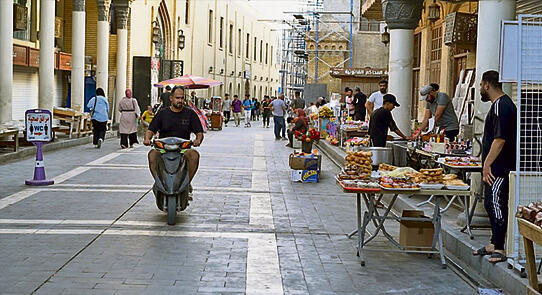Exclusive footage from Baghdad: Tracing the Israeli hostage
(credit: ynet)
Significant gaps remain in the case of the Israeli researcher Elizabeth Tsurkov's kidnapping in Iraq, leaving many unanswered questions. Senior officials in Jerusalem indicate that her release may take several months or even years. However, exclusive footage captured in Baghdad sheds some light on Tsurkov's activities in the city, including leisure, work, accommodation, and meetings with friends and colleagues. The footage was obtained at the request of Ynet's sister publication Yediot Ahronoth, providing valuable insights into her movements
The photos reveal four key locations: the bustling city market of Baghdad situated on al-Mutanbi Street, renowned as the intellectual hub where scholars gather and books are sold; the café captured in the documentation prior to her abduction; the building where she resided during her last visit; and the hotel she frequented. Each location provides valuable insights into Tsurkov's activities and presence in the Iraqi capital.
According to local journalists familiar with Tsurkov, it was not widely known that she held Israeli citizenship. "Those who were part of various groups with her were aware of her Israeli citizenship, but she did not mention it while in the field," One man said. Interestingly, many individuals interviewed in the al-Kharada neighborhood of Baghdad, where she resided, said that they were unaware of her Israeli citizenship. However, they emphasized that this fact did not impact their perception of her.
The cafe she reportedly visited around the time of her abduction is Rida Alwan, which has multiple branches in Baghdad, including one in the al-Kharada district. The same branch where she was captured on film the week she was kidnapped and later broadcast on Iraqi TV. We attempted to contact the coffee branch's manager, but a source close to him, speaking to Yediot Ahronoth, revealed that he found himself unexpectedly caught in a media storm following the incident.
According to his relatives, he "felt threatened, so he decided to leave the city and stay away for a while until the story settled." It remains unclear if he actually departed Baghdad, but even if this account is inaccurate, it demonstrates the significant impact and attention surrounding the incident and the cafe. "She would sit here with an open laptop, a hot drink by her side, sometimes alone and sometimes with people," shares a journalist acquainted with the Israeli researcher. "She always had a book or notebook on the table. She was an intriguing and pleasant individual."
Sources in Baghdad reveal that Tsurkov leased an apartment in a typical residential building. This location provided convenient proximity, either by foot or a short drive, to the various points of interest that intrigued her. However, these sources also indicate that she would occasionally stay in one of the hotels in the vicinity. According to the same sources, she frequently spent considerable time exploring al-Mutanbi and al-Rashid streets, as well as the bustling city market, freely strolling through these vibrant areas.
People who were acquainted with Tsurkov and had multiple encounters with her in Baghdad portray her as a kind-hearted journalist who never caused harm to anyone. They express their profound shock upon hearing about her abduction. A local painter in the Al-Mutnabi Street area recollects her genuine interest in his artwork and her request to document his creations, which she shared with other journalists who frequented the area.
According to a report by the Russian newspaper "Kommersant," Israel did not seek assistance from the Russian Foreign Ministry in its efforts to secure the release of Tsurkov, who was abducted four months ago and is currently being held by the Iraqi Hezbollah brigades. The report also mentions that Tsurkov's relatives have not reached out to the Russian embassy for assistance.


